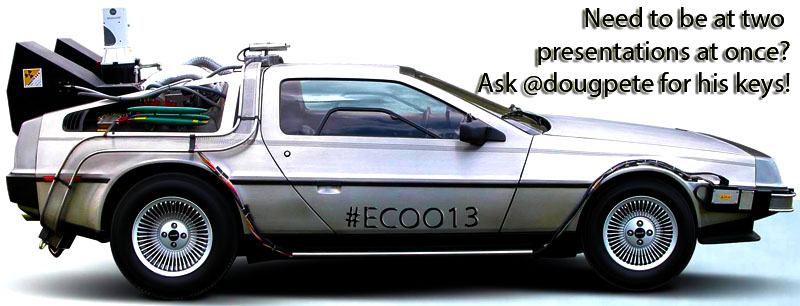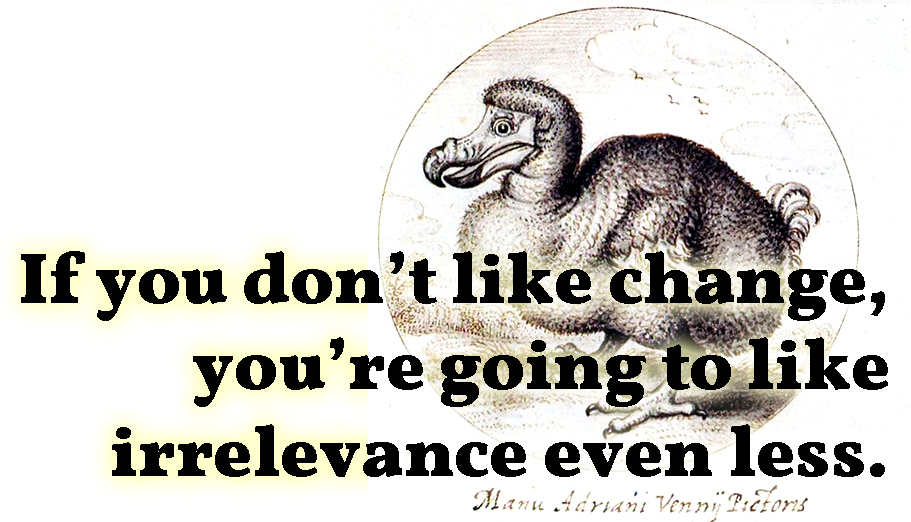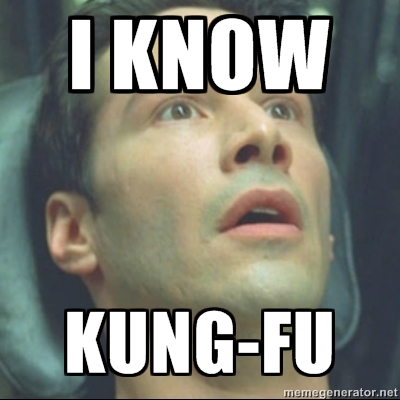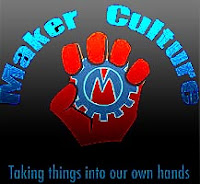Still thinking about ECOO in a couple of weeks. I’ve already taken a run at it on Dusty World once. There is a lot in this, I’m still curious to see how it will unfold.
| http://lanyrd.com/2013/ecoo13/schpzd/ |
We live in a time of profound change. The very definition of who and where we are is constantly changing. Never before in history have people been as connected to so many different people and places as they are now. Trends suggest it will only intensify. Are we doomed to a half existence in many places, constantly distracted, unable to complete a thought? Or will the person on the other side of this technological adolescence be multi-dimensional in ways we can’t currently imagine?
Come with me on an examination of recent history and future trends. How can we integrate or separate technology to better facilitate learning? How can we prepare students for the strange world they are about to graduate into? How can we survive and thrive in these times of profound change ourselves?
“Our selves are being stretched and amplified in ways they never have before. Nick Carr’s The Shallows puts us on a pretty stark trajectory towards idiocy with what is happening to us. The digitization of the self stretches us flat, making continuity of thought impossible and turning us all into distracted, simplistic cogs in a consumerist machine designed to turn us all into the lowest common denominator; none of us any smarter than our smartphones.”
| http://www.robinsloan.com/epic/ |
“At it’s best, edited for the most savvy readers, EPIC is a summary of the world, deeper, broader, and more nuanced than anything ever available before. But at it’s worst, and for too many, EPIC is merely a collection of trivia, much of it untrue, all of it narrow, shallow, and sensational.”
That technology could retard our ability to think is a dangerous consideration that a number of people are concerned about. I don’t doubt that digital tools can enhance us as human beings, I’m writing this and you’re able to read it entirely due to digital technology. Digital tech lets people work around authoritarian governments and democratize media.
I occasionally see people who are able to harness technology as a personal amplifier, but for far too many it is a source of distraction, habitual time wasting and a net loss for them.
A book I half read a while back was The Nerdist Way by Chris Hardwick. I wasn’t able to get through the self help bit at the back, but the first half was an interesting autobiography of a guy immersed in technology to such a degree that it derailed him. His philosophical change allowed him to regain control of his career and put what he describes as his nerdist ways to productive use. Rather than spending eight hours a day playing World of Warcraft, Chris chose to focus his nerdly powers of concentration on productive activities. He describes a nerd as someone who is able to hyper focus on minutia that fascinates them. He broke his habitual use of technology by demanding that his fixations serve him instead of the other way around. If it can work for a nerd (and we’re all nerds according to that definition) then it’ll work for everyone.
Is always on exhausting or exhilerating? Is it functionally better to be connected? What is the golden ratio for communicating f2f or remotely? How could technology itself assist us in optimizing our presence both physically and virtually? How can we highlight ineffective use of technology, analyze it and resolve it?
I suspect this is going to become a timeline. With a bit of perspective I might be able to make some reasonably accurate predictions about where we going, because this is one big weird rabbit hole we’re all going down together and a lot of people are getting lost in it.
The followup post analyzing the ECOO13 conference can be found HERE.















